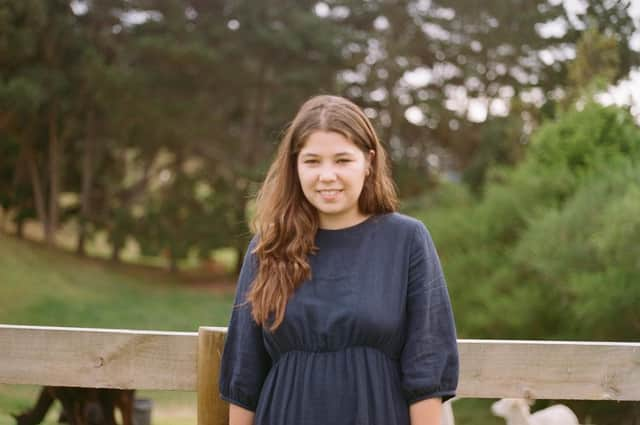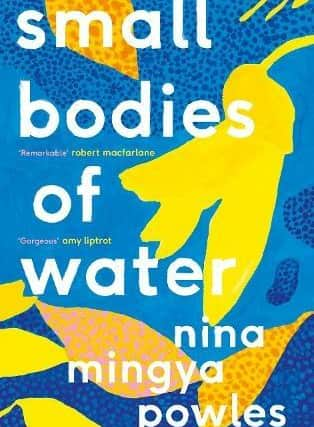Book review: Small Bodies Of Water, by Nina Mingya Powles


Small Bodies Of Water is in the genre of what has come to be known as “creative non-fiction.” Perhaps the word miscellany or gallimaufry might be more fitting, since the pieces range in both topic and style throughout. There are some which are absolutely fascinating and some which are tooth-grindingly banal. Nina Mingya Powles is a poet, and I am curious about poets veering into non-fiction. At times, as with the essays of Kathleen Jamie or the memoir by the recently Booker-longlisted Patricia Lockwood, Priestdaddy, it can bring acute observation to the ordinary. Sometimes, it can seem like that dread phrase “fine writing,” with nice imagery but no argument or narrative propulsion.
Powles sets out an agenda in the first pages. She states “I am white and Malaysian Chinese, though not everyone can tell this straight away.” In a more flamboyant style she questions the reader “Where is the place your body in anchored? Which body of water is yours?” Yours, and the very idea of ownership, will become problematic. She has lived in Shanghai, New Zealand, London and Malaysia. There is a phenomenon known as TCK – Third Culture Kids – to describe those who have experienced multiple cultures and feel a sense of rootlessness at the same time.
Advertisement
Hide AdA few pages later she ponders, “Home is not a place but a collection of things that have fallen or been left behind: dried agapanthus pods, the exoskeletons of cicadas (tiny ghosts still clinging to the trees), the discarded shells of quail eggs on Po Po’s plate, cherry pips in the grass, the drowned chrysanthemum bud in the bottom of the teapot.” Well, alright, but I’ll raise you the gooseberry bush in autumn, the nectarine stone spat out by my Dad, the faded chervil (tiny purple leaves still clinging to their memory of green), the pigeon’s fledgling’s shell and the badger’s scat. Anyone can just list stuff that is in their lives.


A great deal of the weaker material here is almost like prose haiku. The classical haiku ends with a more meditative note, but here we get sentences like, after a rather ponderous memory of flooding and stranded cows, that the farmer “used a shovel to dig them a path to safer land.” The sections tend to be concise, and so the final part reads like someone trying to be profound, rather than being profound. The book, of course, includes memoir, but here Powles is both fey and coy. Relationships are mentioned, but as if we already knew the person. They are un-fleshed. There are numerous accounts of her dreams, usually involving orcas, whales and floods, and it is a truth universally acknowledged that other peoples’ dreams are boring. I dream vividly, but I don’t put my dreams in a book.
What is good in the book is a sense of being stranded between languages. I learned a lot from these sections. There is the use of New Zealand, or Maori, words – tūī, pūkeko, kākaā, ruru, takahē. One of the finest parts is about learning Mandarin, and how the ideograms actually function. Then there is the more memoir related material, about her grandparents speaking Hakka, a “dialect” of Chinese, though such terms are more than slippery. In some ways the book enacts its own disparity. It might seem disjointed, but its theme is being disjointed. Between cultures, languages and continents, one has to find a kind of connection.
The connections here are tenuous at best. Swimming, the colour blue, Chinese cuisine – they rhyme across the essays, but to little real effect. Sometimes I wondered if I really needed another description of the colour of something; but it is to an extent mitigated by a very good piece on the idea of the colour spectrum and how we “name” colours. (It might have been expanded: Russian has two very different blues, Welsh has “glas” to mean grey, green and blue, and nobody really knows what the “wine-dark” sea in Homer actually looks like). Other sections deal with the specific names for flowers or the Chinese words for months, or her grandfather’s ichthyology, and these are done with a poet’s eye to how words are specific. I was reminded of Robert Macfarlane’s quest to reclaim blackberries from the Blackberry, and how knowing the precise name of something is a boon. I have been criticised for using long or obscure words, but the difference between haar and smirr or crepuscular and twilight is actually important.
The book establishes its credentials, as feminist, aware of racism, anxious about the digital world and concerned about imperialism. I don’t use the word “woke,” but the book is indubitably of the moment. The parts on the Hakka culture are superb. Were they economic migrants, refugees or a subtle kind of colonialism? This is proper, hard thinking and not just conjuring an adjective for something. The idea of “anticipatory grief” is a useful one. More of this, and less about Creative Writing classes and the colour of bikinis would be very welcome in a future book.
Small Bodies Of Water, by Nina Mingya Powles, Canongate, £14.99. Nina Mingya Powles is appearing at the Edinburgh International Book Festival on 15 August, www.edbookfest.co.uk
A message from the Editor
Advertisement
Hide AdThank you for reading this article. We're more reliant on your support than ever as the shift in consumer habits brought about by coronavirus impacts our advertisers.
If you haven't already, please consider supporting our trusted, fact-checked journalism by taking out a digital subscription at https://www.scotsman.com/subscriptions